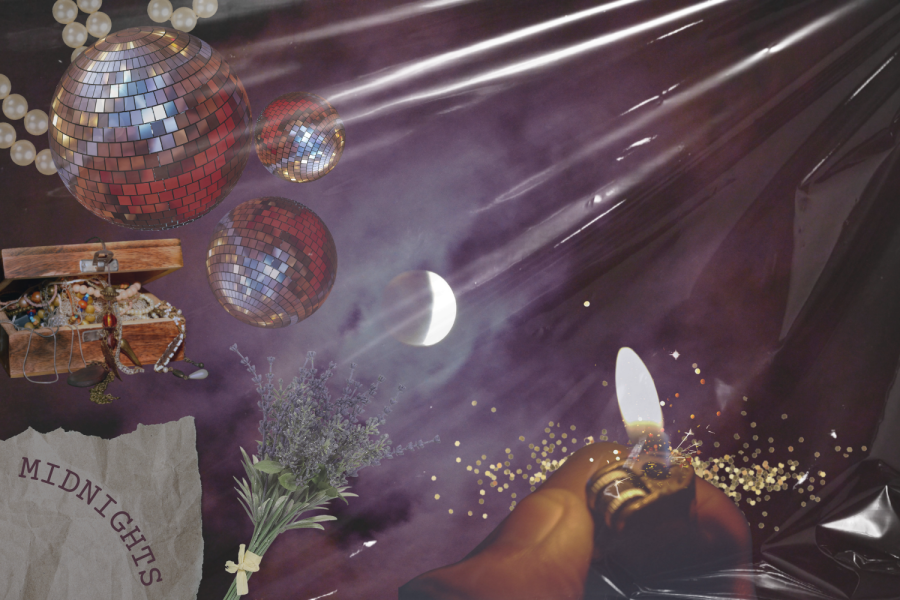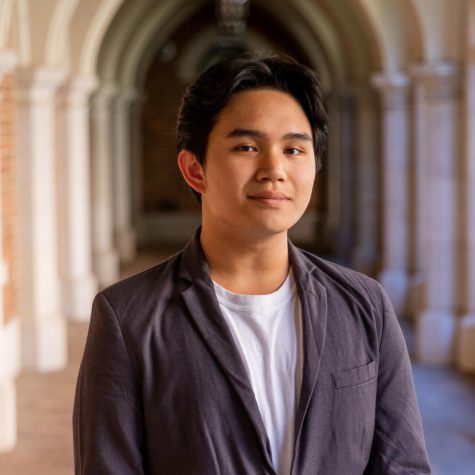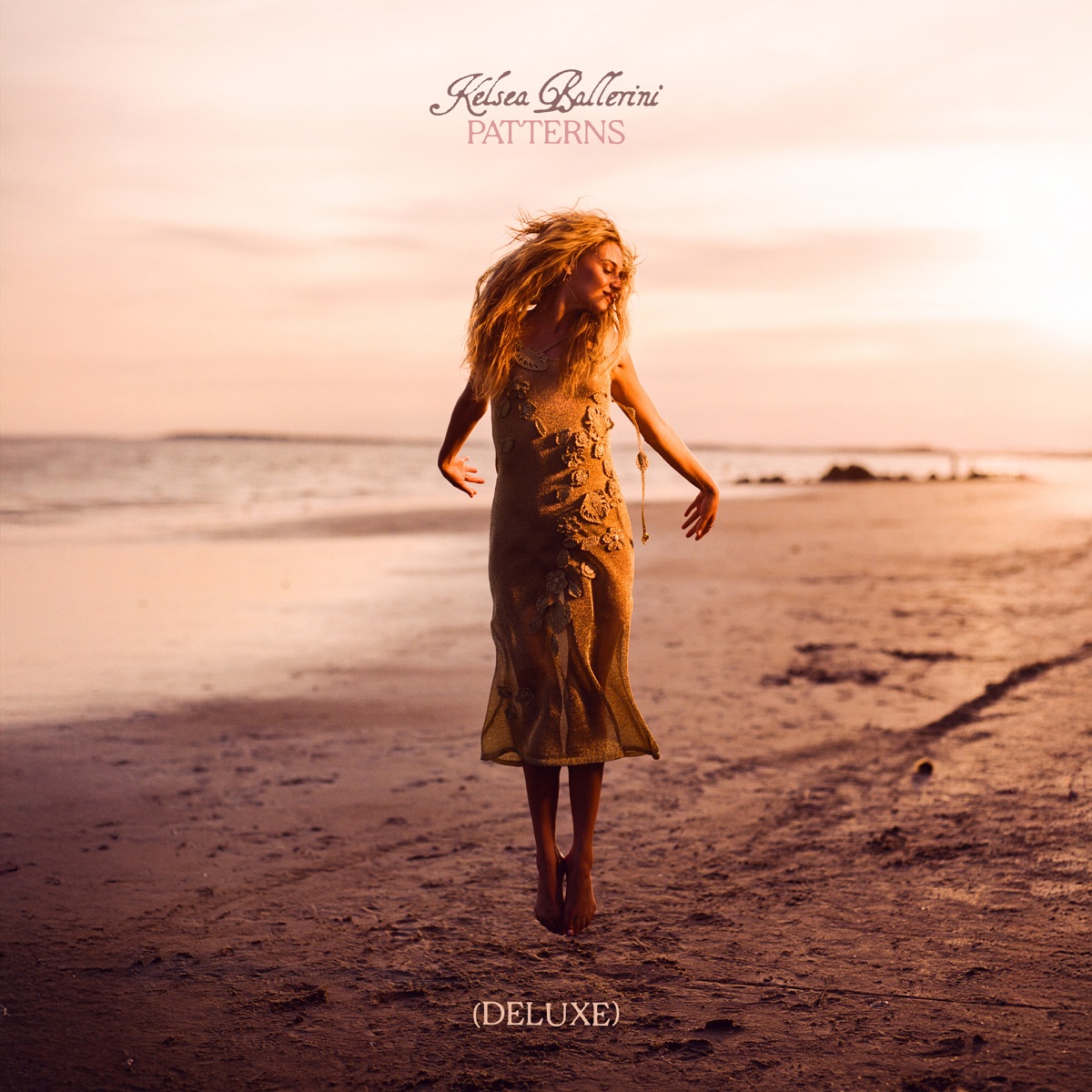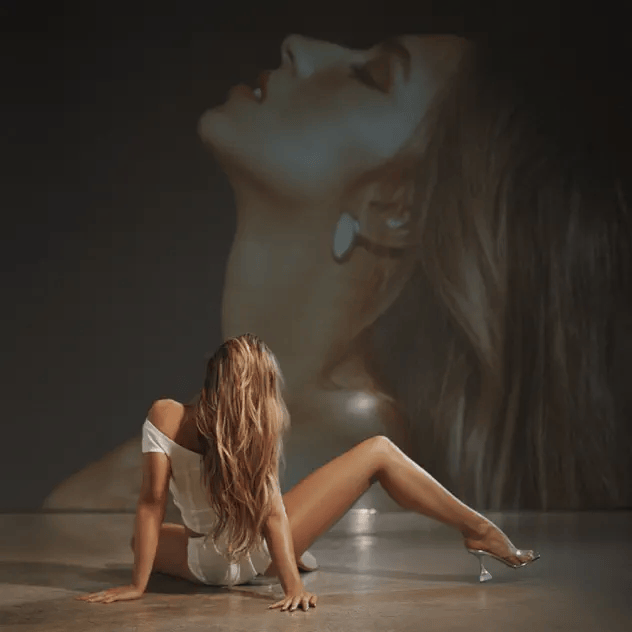After shocking the world at the 2022 Video Music Awards by announcing her 10th studio album would be brand new and not a re-recorded album as expected, Taylor Swift released “Midnights” at midnight on Oct. 21. The original 13 tracks represent the stories of 13 sleepless nights that Swift experienced throughout her life. In honor of the fitting album title, we spent a sleepless night anxiously awaiting the album drop and listening along to every perfectly-written word.
Leaving a trail of Easter eggs in the weeks leading up to the release date, no one could have predicted exactly what this album would sound like. Less than two years after the sneaky release of sister albums “folklore” and “evermore” and right in the middle of re-recording her first six studio albums, “Midnights” feels secretive. This album is meant to be unpacked at night (as the title suggests) with lights off and headphones in. By letting her thoughts creep in and lyrics creep out, “Midnights” perfectly blends the pure pop left behind by “1989” and “Lover” with the indie-folk of “folklore” and “evermore.”
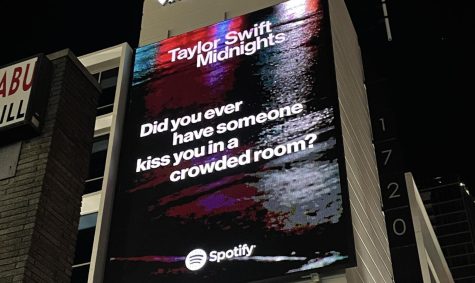
Opening the album with a dark, amateur mindset, “Lavender Haze” draws on the 1950s phrase for inspiration. Coined in the TV show “Mad Men,” the phrase was used to describe being so in love that you force the “honeymoon” phase for as long as possible. Zoë Kravitz collaborated with Swift to write the song and joined a gentle pulse and buzzing undercurrent to detail the scrutiny of a public relationship. The beat of electric drums and Swift’s upper range push the consistent crescendo until eventually lightly fading out at the end of the song.
What is a color very similar to “Red”? “Maroon.” In “Red,” Swift describes red as the color of love, but in “Maroon,” it is a deep love affair. Maroon is now the blood rushing to cheeks, wine splashed on a shirt and dancing with a man in New York. Keeping the same fast-paced upbeat rhythm found in “Red,” “Maroon” feels more mature and is the updated product of “1989” and “Reputation” for sure.
“Anti-Hero,” the official lead single in the album, passionately sings of true self-loathing and Swift’s deepest insecurities. It digs into her lowest moments like never before. The song opens with a few bars of solid electric drums—a mesmerizing pattern in the album reminiscent of Owl City and early 2010s synth-pop. Although she has previously spoken about low moments throughout her career, Swift mentions depression for the first time in her discography in “Anti-Hero.” The lyrics “Midnights become my afternoons / when my depression works the graveyard shift” once again hone in on how nighttime leaves room for deep thoughts to overtake all headspace.
Prepping for colder weather, “Snow on the Beach” shares the story of falling in love with someone who is simultaneously falling in love with you. Swift’s voice perfectly sweeps up and down the lyrics while a violin plucks along. It makes us feel like snow is lightly falling and crinkles below your boots as you walk. Lana Del Rey joins in with creamy background vocals to push the melancholy melody and aching beauty of falling in love along. However alluring this painting is portrayed, there’s a sense of evanescence in the metaphor of the snow: a seemingly ubiquitous sleet of purity that disappears in waves as the ocean calls it back from its place on the beach. This idea connects to her 2012 Grammy Museum speech where she acknowledged that relationships that aren’t meant to last forever are “somehow meaningful in that fragility.”
Things take a turn in “You’re On Your Own, Kid,” as Swift reveals the missing pieces that connect “Cruel Summer” and “Paper Rings” from “Lover.” While she tangentially touches on personal issues in her Netflix documentary “Miss Americana,” she candidly shares information about her personal well-being in the song via lines like “I hosted parties and starved my body.” The bulk of the song revolves around the whirlwind romance that ensues during this tumultuous period in her life and career. It elaborates on the thrilling, messy and glamorous feeling of chasing someone while keeping it “chill,” an idea present in all of these tracks.
“Vigilante Shit” draws on the gnarly rhythm of Swift’s “Reputation” era. The theatrical chorus and consistent minor chords add to a lyrical playground that will certainly have Swifties digging and speculating for weeks. “Vigilante Shit” comes after “Question…?” and obviously targets a specific person, perhaps a past lover or public enemy. Similarly, “Question…?” asks a series of questions in the chorus singing “Did you leave her house in the middle of the night? / Did you wish you’d put up more of a fight when she said it was too much? / Do you wish you could still touch … her?” This situation is definitely a complicated series of entanglements that refers back to “Out Of The Woods,” especially since the song begins with Swift singing “I remember,” similar to the repeated vocals in the “1989” hit single.
“Labyrinth” stays with the secretive, puzzle-like content of “Question…?” and displays the fears of love time and time again, arriving in a pillowy landing spot provided by the ethereal quality of Swift’s upper register. Straightforward lyrics like “Oh, I’m falling in love / I thought the plane was going down / How’d you turn it right around?” share the pain in letting one’s guard down, only to put it right back up, forgetting the lessons we learned.
“Sweet Nothing” is a song we can see being overlooked as a favorite in the lineup, but personally, it is one of our top choices. The majority of The Hustler’s Multimedia section will be sending us a strongly-worded Slack message for this, but the wispy ballad is reminiscent of a lullaby and could make you cry if you tried hard enough. It has made us incredibly nostalgic and it feels like the memories of growing up. Sprinkled with subtle flute and clarinet melodies, this track truly is sweet and perfectly celebrates escaping from life’s madness.
“Mastermind” ends the madness that is this album with an ode to Swift’s own shrewdness. She once again presents raw collections of her own life through a techno riff opening and steady beat throughout. Sighing over cinematic string instruments, Swift sings “No one wanted to play with me as a little kid / So I’ve been scheming like a criminal ever since.” This bridge pulled at my heartstrings for some reason, but we admire the newfound confidence heard in her lyrics as she is unashamed to share her deeply personal stories.
We grew up religiously watching the reality show “Big Brother,” so “expect the unexpected” rang through our ears when Swift announced her chaotic, 3 a.m. surprise: seven more songs. She explained on Instagram that, although the original 13 songs form a full picture of the “mystifying, mad hour,” there were still more songs to be shared. Alas, seven more songs were added to this late night.
The country roots she revisited in her re-recorded albums are noticeably absent in “Midnights,” so we assumed we would hear some in the 3 a.m. edition. But, Swift proved us wrong once again. She instead leans on her “1989” pure-pop vibes for the seven bonus songs. To put it simply, “Paris” is such a fun song. Remembering a trip to Paris, “Paris” recalls being aloof to the outside world while being in love. Through a pulsing beat and a voice reminiscent of “Lover,” Swift confesses her love in a love letter before the song fades out leaving listeners with a beat that will be stuck in their heads for the rest of the day.
“Would’ve, Could’ve, Should’ve” tells the painful and familiar story of regret. Looking through more mature eyes, Swift explains how she “regrets dancing with the devil at 19.” This song feels like classic Taylor Swift to me—leaving us with more questions than we started with but still maintaining the reminiscent, story-pop of “1989.”
Wishing us more sweet dreams than nightmares, there is something special about the words in “Midnights.” There is a reason this album isn’t called “afternoons”; late-night writing has made her story-telling and discography richer. This collection of catchy pop and classic Swift storytelling is deeply personal for those who relate—keeping our thoughts going in the middle of the night, hoping that clarity will come with a new day.

